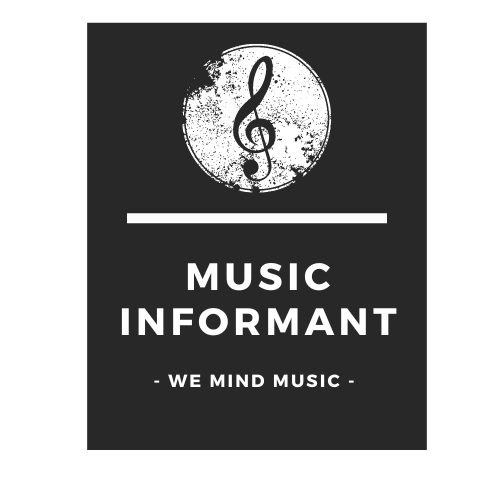
Welcome to MusicInformant.com, your go-to source for everything related to music analysis! If you’ve ever found yourself captivated by a piece of music and wondered how to peel back the layers to truly understand its intricacies, you’ve come to the right place. In this comprehensive guide, we’ll delve into the art of music analysis, providing you with valuable insights and techniques that will enhance your appreciation of music. Whether you’re a budding musician, a music enthusiast, or simply curious about the magic behind the melodies, we’ve got you covered.
Unlocking the Secrets of Music Analysis
1. Dive into the lyrics
One of the fundamental aspects of music analysis is understanding the lyrics. Lyrics often convey the songwriter’s emotions, thoughts, and messages. Pay attention to the storytelling, wordplay, and metaphors used. Lyrics can provide essential context for the overall meaning of the song.
2. Explore Musical Structure
Understanding a song’s structure is crucial to music analysis. Most songs follow a specific arrangement, such as verse-chorus-verse-chorus-bridge-chorus. Analyze how the different sections work together to create a cohesive narrative or emotional journey.
3. Examine Melodic and Harmonic Elements
Melody and harmony are the heart of music. Analyze the melody’s contour, rhythm, and phrasing. Explore the harmonies that accompany the melody, noting chord progressions and key changes. These elements contribute to the overall mood and atmosphere of the song.
4. Decipher Instrumentation and Arrangement
Each instrument and sound in a song serves a purpose. Analyze the instrumentation and arrangement choices made by the musicians and producers. Consider the role of each instrument and how it contributes to the song’s texture and dynamics.
5. Context Matters: Historical and Cultural Influences
To fully grasp a piece of music, it’s essential to consider its historical and cultural context. Research the time period when the song was created and any significant events or movements that may have influenced its creation. Understanding these factors can shed light on the song’s intended message.
6. Delve into the Artist’s Background
A musician’s personal experiences and background often shape their music. Take the time to learn about the artist’s life, influences, and artistic journey. This knowledge can provide valuable insights into the meaning behind their songs.
7. Connect Emotionally with the Music
Music is a powerful medium for conveying emotions. Analyze how the music makes you feel and consider the emotional impact it may have on others. Music analysis isn’t just about intellectual exploration; it’s also about connecting on an emotional level.
8. Compare and Contrast with Similar Works
To gain a deeper understanding of a piece of music, compare it to similar works within the same genre or style. Contrasting different compositions can highlight unique aspects and innovations in the music you’re analyzing.
9. Seek Input from Others
Don’t hesitate to seek input from fellow music enthusiasts or experts. Engaging in discussions and sharing perspectives can lead to new insights and interpretations of a song.
10. Keep Learning and Listening
Music analysis is an ongoing journey. Continuously expand your musical knowledge and keep listening to a wide range of music. The more you explore, the more skilled you’ll become at deciphering the complexities of music.
Frequently Asked Questions (FAQs)
Q1: Can anyone learn to analyze music, or is it a skill reserved for musicians?
Music analysis is accessible to everyone, regardless of musical background. While musicians may have a deeper understanding of certain technical aspects, anyone can appreciate and analyze music on an emotional and intellectual level.
Q2: Are there specific tools or software for music analysis?
Yes, there are various tools and software available for music analysis, such as music notation software, audio analysis software, and music theory apps. These tools can assist in the analytical process, but they’re not essential for beginners.
Q3: What are some recommended resources for learning more about music analysis?
You can start by exploring books on music theory and analysis, online courses, and educational YouTube channels. Additionally, engaging in music forums and communities can provide valuable insights and resources.
Q4: How can music analysis enhance my overall music-listening experience?
Music analysis allows you to listen to music with a more discerning ear. It deepens your appreciation by revealing the thought and artistry behind each composition, making your listening experience more enriching and enjoyable.
Q5: Is it possible to overanalyze music and lose the emotional connection?
While analysis can provide valuable insights, it’s important to strike a balance between intellectual examination and emotional connection. Music should ultimately be enjoyed, and overanalysis should not detract from the pleasure it brings.
In Conclusion
Analyzing music is a rewarding journey that unveils the hidden layers of artistry and emotion within each composition. By following the expert tips outlined in this guide, you’ll develop a deeper understanding and appreciation of music. Remember, the more you immerse yourself in the world of music analysis, the richer your musical experiences will become.
This article was written by MusicInformant.com, your ultimate destination for music insights and knowledge. Stay tuned for more captivating content that will elevate your musical journey.









